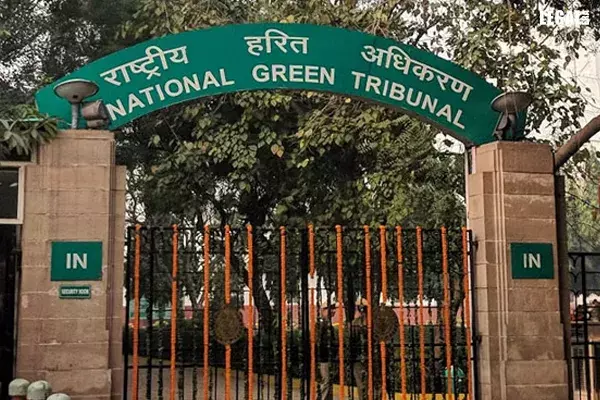NGT orders Jindal Steel to compensate kin of 2020 blast victims
The heirs of two deceased workers have to be paid Rs.20 lakh each within a month;

NGT orders Jindal Steel to compensate kin of 2020 blast victims
The heirs of two deceased workers have to be paid Rs.20 lakh each within a month
The National Green Tribunal (NGT) has directed Jindal Steel and Power Limited (JSPL) to pay compensation to the families of two workers who died due to a blast on its premises on 10 June 2020 in Patralapli village in Chhattisgarh's Raigarh district.
Additionally, JSPL was ordered to pay Rs.5 lakh each to two workers who suffered burn injuries in the incident. NGT observed that the company did not show any ‘concern’ expected from a responsible business entity.
The two workers, Kanhaiya Lal Poddar and Jayman Khellkon had suffered nearly 90 percent burn injuries in the incident. They died at a hospital on 12 June 2020. The other two workers Arvind Kumar Singh and Laluram survived with injuries.
The suo-motu proceedings in the matter were initiated by NGT on the basis of a media report. The police had maintained that the blast occurred when the workers were cutting an old diesel tank with a gas cutter at a scrap yard.
The bench of chairperson Justice A K Goel stated, "The heirs of the deceased will be entitled to an amount of Rs.20 lakh each, and the injured will be entitled to Rs.5 lakh each, payable by JSPL within a month. In default of payment, the district magistrate may take coercive measures for recovery, including disconnecting electricity (of the unit)."
NGT’s bench, which also comprised judicial member Justice Arun Kumar Tyagi and expert members A Senthil Vel and Afroz Ahmad, requested the State Legal Services Authority to provide necessary legal aid in the matter.
The bench ruled, "This order will not debar any other civil or criminal liability of JSPL. We further direct the Directorate of Industrial Safety and Health (DISH) to audit the safety norms adopted by the unit so that such incidents do not reoccur in the future."
While observing that the workers were denied fair treatment and justice, the bench said the NGT was a forum of limited jurisdiction, but there was no bar from highlighting patent injustice to poor victims before it.
The tribunal further stated that it was ‘established’ that the deaths of the two workers and the burn injuries to the two surviving workers were on account of the establishment's failure to follow environmental safety norms.
"A commercial establishment undertaking hazardous activities has absolute financial liability for injuries or loss of life to anyone and such liability is apart from the liabilities under other laws, including criminal offences," the bench said.
The tribunal added it was unfortunate that no proceedings under the Indian Penal Code (IPC) were initiated and the only prosecution was against the managers under the Factories Act, 1948. They were let off with imprisonment till the rising of the court and a fine.
Moreover, the injured were not paid any compensation as they did not lose any organ, and the heirs of the deceased were not paid any compensation under the Workmen's Compensation Act, 1923.
The green panel stated, "As a responsible business entity, JSPL is expected to show sensitivity for loss of lives and injuries to persons on account of failure in following expected norms. Unfortunately, they have chosen to raise technicalities and even two years after the incident, they have merely stated that they are willing to pay Rs.3 lakh, without undertaking to pay anything.”
"Mere expression of willingness instead of doing duty is nothing. We cannot help recording our observation that the establishment has not shown the concern expected from a responsible business entity,” it added.
NGT said it had come across a large number of cases of deaths and injuries due to the failure of establishments undertaking hazardous activities without following safety norms and the victims were denied justice.
The tribunal held, "The statutory regulators fail to ensure compliance and also to make erring establishments duly accountable as appears to be the case here.”

